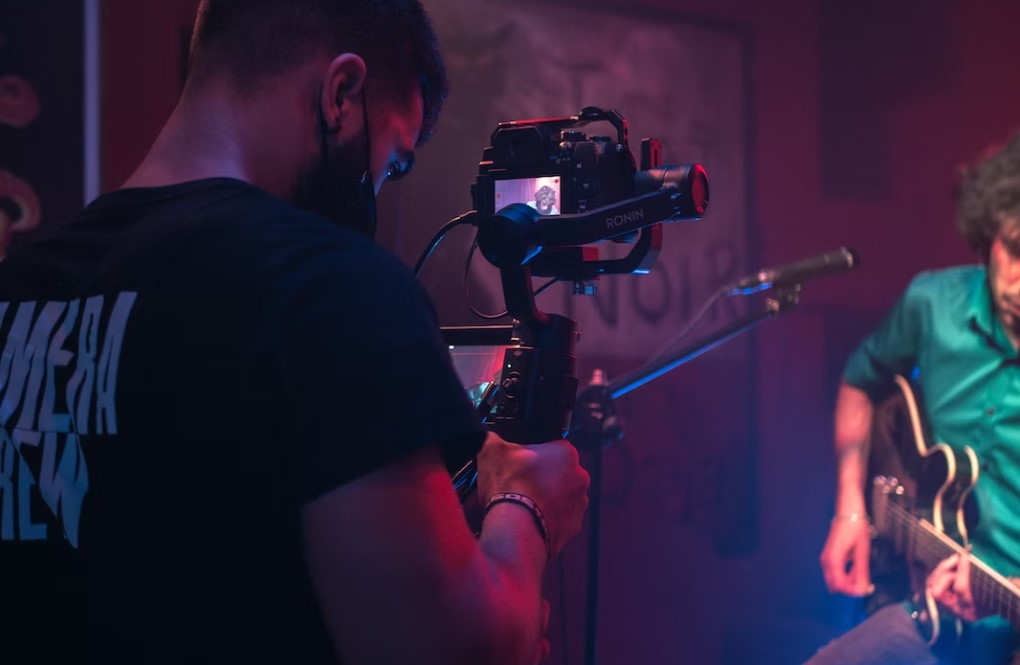27 Apr What are Moral Rights in Australia?
 Author: Ian Aldridge, Progressive Legal
Author: Ian Aldridge, Progressive Legal

As a business owner, you are likely familiar with the concept of intellectual property and how it can protect your creations and innovations from being copied or used without your permission. However, you may not be aware of the related concept of moral rights, which protect the non-economic interests of creators or authors.
Moral Rights protect the personal relationship between a creator and their work even if the creator no longer owns the work, or copyright in their work. If you have authored a work, the Copyright Act 1968 (Cth) (“the Act”) has provisions in place which recognise authors’ moral rights. Moral rights are rights which exist additional to copyright and are aimed at protecting the author’s honour and/or reputation.
This article will consider:
- What are moral rights?
- Right of Integrity;
- Right of Attribution;
- Right of False Attribution;
- Performers Moral Rights;
- Can you assign moral rights?;
- Defences to moral rights;
- Remedies available for infringement; and
- Key takeaways.
Need IP legal advice in relation to your moral rights?
Contact Progressive Legal below for tailored legal advice and to get in touch with our team today.
REQUEST OUR ADVICEWhat are moral rights?
Moral rights automatically apply to works created by an author, and their purpose is to protect the personal and/or artistic relationship between authors and their work. The rights were introduced into the Copyright Act in 2000 and offer protections to creators beyond the economic interest provided for by copyright.
There are three types of moral rights:
- Right of Integrity;
- Right of Attribution; and
- Right Against false attribution.
Right of integrity
Pursuant to section 195AI, the right of integrity is the right of an author to not have his or her work subject to derogatory treatment.
Section 195AJ defines “derogatory treatment” in relation to a literary, dramatic or musical work as:
(a) the doing, in relation to the work, of anything that results in a material distortion of, the mutilation of, or a material alteration to, the work that is prejudicial to the author‘s honour or reputation; or
(b) the doing of anything else in relation to the work that is prejudicial to the author‘s honour or reputation.
Right of integrity case law example
In Perez & Ors v Fernandez [2012] FMCA 2, Mr Perez (otherwise known as “Pitbull”) successfully claimed that an Australian DJ (Mr Fernandez – who also had the show name of DJ Suave) infringed his moral rights by distorting the song “Bon, Bon” (“the Song”) such that it was harmful to the plaintiff’s reputation.
Facts
Although the copyright in the song was owned by the record label “Mr 305”, Perez was the author and therefore had a right of integrity in the song.
Perez and Fernandez had an agreement relating to the former promoting an Australian tour (“the Agreement”). Part of the Agreement provided that Fernandez obtain an audio drop of Perez using the words “Mr 305, I am putting it right down with DJ Suave” (“the Drop”).
Effectively, Fernandez mixed in the Drop with the Song (without the authorisation of Perez) and uploaded it on a site which allowed for it to be streamed but not downloaded (“the mixed Song”).
Perez commenced proceedings claiming that this constituted an infringement of his moral right to integrity under s 195AI and authorship.
Held
Put simply, the Court held Perez had his moral rights infringed and that the mixed Song had the effect of having it appear as though Fernandez was part of the Song. His Honour, Driver FM noted:
“I accept from the evidence of Ms Martinez [Perez/ Pitbull] that the rap/hip hop genre is one in which an artist’s commercial and artistic associations really matter. Success in building a reputation, developing a fan base, selling records, attracting people to concerts, and ultimately entering into lucrative commercial sponsorships and endorsements depends in large measure on the other artists and brands the artist is seen to associate with. It is also a genre which has been closely linked to “DJ-ing…” at [68].
As such, the Court was of the view that the mixed Song was a distortion of the Song, such that it was prejudicial to the honour and reputation of Fernandez.
Artistic and cinematograph films
In relation to artistic works, s 195AK(b) adds to the above by noting that derogatory treatment also means:
(b) an exhibition in public of the work that is prejudicial to the author’s honour or reputation because of the manner or place in which the exhibition occurs.
Lastly, in relation to cinematograph films derogatory treatment means:
(a) the doing, in relation to the film, of anything that results in a material distortion of, the mutilation of, or a material alteration to, the film that is prejudicial to the maker‘s honour or reputation; or
(b) the doing of anything else in relation to the film that is prejudicial to the honour or reputation of the maker of the film.
For the purposes of the Act, a maker of a cinematograph film is the director, producer or screenwriter of the film.
Ultimately, the right of integrity protects artistic integrity and aims to ensure that others do not materially distort, destroy, mutilate or alter the work.
Right of attribution
The right of attribution of authorship is the right to be identified and named as an author of a work. Where an author is identified, such identification must be clear and reasonably prominent (s 195AA).
Further, Section 195AB provides some guidance on what constitutes “reasonably prominent identification” and notes that this occurs when it “is included on each reproduction of the work or of the adaptation or on each copy of the film… in such a way that a person acquiring the reproduction or copy will have notice of the author’s identity”.
Hence, a work needs to clearly show the authors identity.
Right against false attribution
The right against false attribution (s 195AC) is the right not to have someone else falsely be credited as the author of a work. Depending on the nature of the work, different acts may constitute acts of false attribution.
What are the moral rights of performers?
On 26 July 2007, and in response to Australia’s accession to the WIPO Performances and Phonograms Treaty 1996, Part IX of the Act was amended to introduce provisions pertaining to the moral rights of performers. These rights related to performers who contribute to the sounds of a live performance and performers who had their live performances recorded in audio form.
For the most part, performers’ moral rights mirror the standard moral rights by conferring the right of attribution, the right against false attribution and the right of integrity on the performer.
When do performers’ moral rights not apply?
It is important to note that moral rights in relation to performances only apply to live performances and sound recordings of live performances. If you, for example, are an actor in a cinematograph film such as a TV Show or Movie, you cannot rely on a claim for performers moral rights. In such instances, moral rights are only conferred on the “maker” of the film; that being a director, producer or screenwriter.
Lastly, it is important to note that these performers moral rights only apply to performers who contributed to the sounds of a performance, or which were recorded on a sound recording after 26 July 2007.
Can you assign moral rights?
Moral rights are personal rights that are closely tied to the creator’s reputation and identity. As such, they can’t be assigned or transferred to another person.
However, creators can waive their moral rights or license their works in a way that respects their moral rights.
What are the defences to moral rights?
Defences to moral rights include:
- Consent;
- Reasonableness of the infringing activity; and
It’s important to note that these defences are limited and must be considered on a case-by-case basis. It’s always best to seek legal advice if you are unsure about whether your use of a work may infringe on the creator’s rights.
What are the remedies available for infringement of moral rights?
If a court finds that that an author’s moral rights have been infringed, the author may get an order from a court for any of the following:
- An injunction;
- Damages;
- A public apology;
- An order that any derogatory treatment or false attribution be removed; or
- A declaration of infringement.
Key takeaways
As a business owner, it’s important to be aware of moral rights and how they may impact your use of intellectual property. By respecting the moral rights of creators and ensuring proper attribution and consent, you can avoid infringing on these important rights and protect your own reputation and integrity as a business owner. Our team of expert Business Solicitors have helped thousands of small business with their intellectual property and trade mark issues.
If you require any advice in relation to moral rights, request our advice below or contact our office at 1800 820 083.
Need IP legal advice in relation to your moral rights?
Contact Progressive Legal below for tailored legal advice and to get in touch with our team today.
REQUEST OUR ADVICEMoral Rights in Australia FAQs
How Do You Obtain Moral Rights?
Moral rights are conferred automatically by creation of the works. However, unlike other intellectual property rights, you cannot transfer, waive or assign moral rights.
What are some real examples of moral rights?
- An author of a book who wants to ensure that their name appears on the cover and in any promotion of the book.
- An artist who wants to ensure that their painting is not altered or modified in any way that could harm their reputation.
- A filmmaker who wants to ensure that their film is not associated with a political party or controversial issue without their consent.
What is the Duration of Moral Rights?
Section 195AM outlines the duration of author’s moral rights:
- An author’s right of integrity of authorship in relation to a cinematograph film continues until the author dies (s 195AM(1));
- An author’s right of integrity other than for a cinematograph film continues until the cessation of copyright in the work (s 195AM(2)); and
- An author’s moral right (other than the right of integrity) continues until the cessation of copyright in the work (s 195AM(2)).
For original works, copyright lasts the lifetime of the author + 70 years, after which it is no longer covered by the Act.
How to Defend Moral Rights?
Put simply, the defences to infringement relate to consent and whether the infringing activity was reasonable. However, the latter defence is inapplicable if relating to the right against false attribution.
Tailor Made Legal Documents
We can provide you with tailored Legal Documents in a number of areas including: Intellectual Property Law, Commercial Law, Privacy Law, Workplace Law, Corporate Law, and Litigation / Dispute Resolution.
Click here to request a fixed-price Legal Document and have a look at the range of different documents we can help you with.

Ian Aldridge is the Founder and Principal Lawyer Director at Progressive Legal. He has over 15 years experience in advising businesses in Australia and the UK. After practising in commercial litigation for 12 years in major Australian and International Law Firms, he decided to set up a NewLaw law firm in Australia and assist growing Australian businesses. Since then, he has advised over 2,500 small businesses over the past 6 years alone in relation to Intellectual Property Law, Commercial, Dispute Resolution, Workplace and Privacy Law. He has strived to build a law firm that takes a different approach to providing legal services. A truly client-focused law firm, Ian has built Progressive Legal that strives to deliver on predictable costs, excellent communication and care for his clients. As a legal pioneer, Ian has truly changed the way legal services are being provided in Australia, by building Legal Shield™, a legal subscription to obtain tailored legal documents and advice in a front-loaded retainer package, a world-first. He has a double degree in Law (Hons) and Economics (with a marketing major). He was admitted to the Supreme Court of NSW in 2005.






